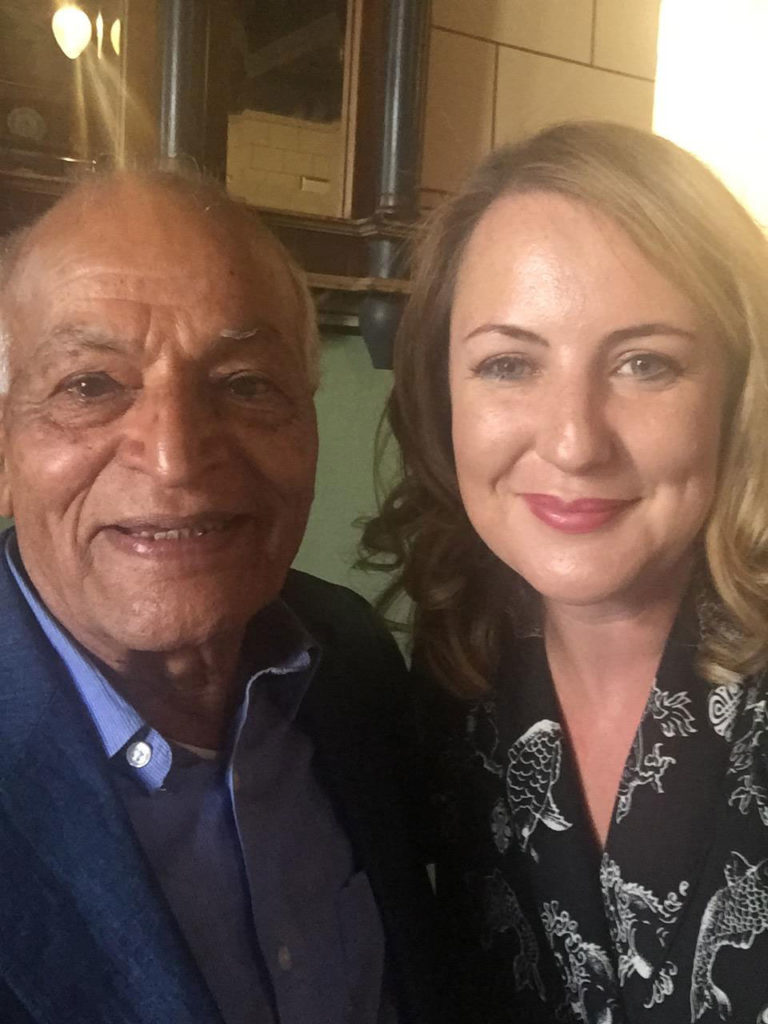The best business is when people, planet and profit intertwine
24/10/17
So being a bit of a feminist I've only really, ever had SHEroes.
Not that I don’t recognise the Heroes there are of course many. I’ve been lucky enough to spend time with many men I admire – Rhodri Morgan being one who immediately springs to mind; but on the basis that society has conditioned us to ‘think hero – think male’, sometimes with cape and mask, sometimes not, I’ve generally made it a point of principle to celebrate Sheroes instead.
There are many; Emmeline Pankhurst I named my daughter after her, Hillary Clinton (I’m still with her), Mo Mowlam – first female politician that I just loved for her down to earth, straight talking, no-nonsense get things done-ness, Rachel Williams, a fearless, Welsh domestic abuse campaigner, my Nan – a feisty Grangetown girl, who worked her way up in the BBC at a time when most women didn’t work, and whilst she remained a PA I’m told she was actually the power behind the throne (it’s not unheard of!).
Anyway, sheroes have been an important part of my life – people you can aspire to, people who are passionate, people who have demonstrated they are willing to challenge the status quo and demonstrate what one person can achieve, people who are often from humble beginnings. And importantly people you actually like – as people. A week or so ago I met someone who fitted all of those categories and broke my Sheroe rule.

I was fortunate enough to attend an event organised by Tidal Lagoon Power with guest, Satish Kumar. Mark Shorrock, Chief Executive, had discovered the story of the former monk, long-term peace and environment activist whose life’s work has been about making the connection between people and planet. Satish Kumar has been quietly setting the Global Agenda for change for over 50 years.
Inspired in his early 20s by the example of the British peace activist Bertrand Russell, Satish and his friend decided whilst sat in a coffee shop in Bangalore that if they believed in the cause they shouldn’t just be sitting there drinking coffee, they should do something about it.
They embarked on an 8,000-mile peace pilgrimage walking from India to the nuclear capitals of the world – London, Paris, Moscow and Washington D.C. to deliver a humble cup of ‘peace’ tea. Satish said the tea hadn’t been part of the plan but on meeting women tea makers at the Black Sea, they thought there was something in their suggestion that he should tell world leaders that if they were contemplating pressing the button they should first have a cup of tea and think some more.
The journey itself became more than a protest about nuclear arms – they decided that they would carry no money and depend on the kindness and hospitality of strangers – connecting with people. During the journey over vastly different terrains and environments, Satish describes how he also connected with the planet and realised how reliant people and the planet were on each other.
Since then, Satish has made it his life’s work to highlight the need for us all to understand and respect this relationship. He challenges the traditional view of prosperity as being about making money. Money is a means to an end of achieving well-being for our people and our planet and should not be the end itself, he says. And whilst I don’t believe that making money and protecting people and the planet are mutually exclusive, so much of what he says connects back to the aspirations and indeed the specific requirements of the Well-being of Future Generations Act. Sitting next to him at lunch provided a great opportunity to hear directly from him and how excited he was that Wales had legislated in this way and in his peaceful yet passionate way he brings it to life.
Along with a room full of senior business leaders I left feeling inspired not only by Satish but by the insight and interest from those business leaders, on how we could shift to recognising that the best business is done when people, planet and profit are present in our thinking.
The Tidal Lagoon in Swansea Bay is a great example of this, and is perhaps why they felt an afternoon with Satish was so fitting. There is lots for us to learn from their vision and for all sectors to think about how people, planet and prosperity can intertwine.
Despite the misgivings of some over the last few weeks this is what the Act is all about and what I will continue to press for.